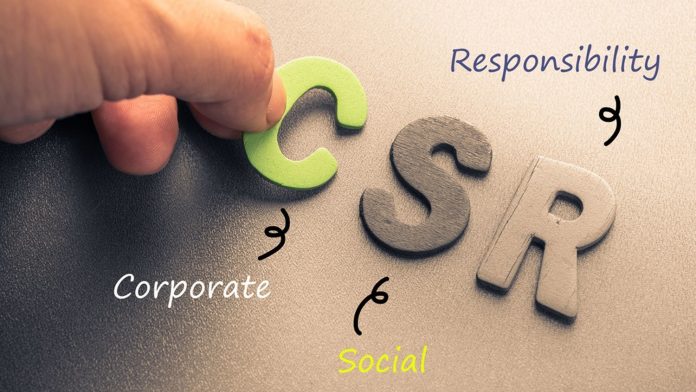This article is written by Nanda Surendran.
Table of Contents
Background
COVID-19 pandemic has drastically affected every sphere of life and altered the dynamic of almost everything we know that existed. In the economic sphere, it is needless to state that Companies have been adversely affected owing to the Pandemic. Despite facing severe losses such as profitability loss, lack of resources, and cutting down human resources, Companies have continued to operate with their restricted means, thereby also serving social welfare. Big corporates in India play multiple roles in the social landscape of the country. As employers of “n” number of people, they are the source of income and wealth generation of a significant proportion of the Indian population, and more pertinently, the ‘working class. Amidst the unfortunate Pandemic, companies maximized their efforts to fulfil all stakeholders’ interests, including their employees and the community at large.
One of the age-old methods of enforcing the social commitment of companies while dispensing their business activities is that of Corporate Social Responsibility (CSR). CSR was inducted into the corporate law regime in India in 2014 and is considered a company’s commitment to society, a means to give back what it has earned. It is much broader than the concepts of mere charity or philanthropy.
Under the regime, Companies that have plenty to offer undertakes beneficial activities to the society sustainably, intending to balance the interests of the society and the long-term interests of its stakeholders. Effective CSR measures boost the principles of good corporate governance within the company while also making a remarkable and positive impact on the social welfare front. CSR is regarded as a commitment to meet the company’s social obligations by playing an active role to improve the quality of life to the communities and stakeholders on a sustainable basis.
What is CSR?
Section 135 of the Companies Act, 2013 regulates the applicability of CSR on companies having the stipulated turnover or net worth and mandates the formation of a CSR committee under which it is to allocate a certain sum to be spent as CSR. The activities that qualify as eligible under the CSR scheme are laid down under Schedule VII of the Companies Act, 2013. It is pertinent that such CSR spending must be done according to the Companies (Corporate Social Responsibility Policies) Rules, 2014 (CSR Rules).
An interesting factor about CSR is that there exists no statutory definition for the concept. The CSR Rules and the items listed in Schedule VII of the Companies Act, 2013, governs what constitutes eligible CSR activities and how they are conducted. The Ministry of Corporate Affairs (MCA) further specifies that entries in Schedule VII must be interpreted liberally to capture the essence of the subjects enumerated in the said Schedule. The CSR Rules (Rule 4) also specify that certain activities cannot be qualified as eligible CSR activities. One of them pertains to “Activities that Significantly Benefit the Employees of the Company and their Families.”
Activities concerning Preventive Healthcare
One of the eligible activities that have gained significance over the years and precisely during the unprecedented outbreak of the COVID-19 pandemic is “Activities Done in Furtherance of Preventive Health Care, “specified under Schedule VII of the Act. The Ministry of Corporate Affairs has time and again released several clarifications concerning CSR expenditures, including clarifications concerning activities of “Preventive Health Care” and “Access to Medical Care.” Through its General Circulars issued in furtherance of clarifying eligible activities for CSR, the MCA has conveyed that activities relating to “Promotion of Health Care Including Preventive Health Care” are covered as eligible CSR and comes within the purview of “Disaster Relief” listed in Schedule VII.
Furthermore, it was also clarified that “Enabling access to, or improving the delivery of, public health systems” can be covered under Preventive Health Care activities. With the outbreak of COVID-19, the CSR rules underwent further modifications when the MCA issued clarifications stipulating that spending of funds for various activities related to COVID-19 was allowed as CSR and within the ambit of Promotion of health care, including preventive health care and disaster management. While several clarifications released by the MCA has incorporated the concept as eligible CSR, what exactly constitute activities in furtherance of preventive health is in grey.
The allowance of CSR funds in furtherance of COVID-19 related activities was merely one among few other policy changes brought forth by the MCA regarding CSR funds and spending. The other changes include allowing eligibility of 100 percent tax deduction for corporates donating to COVID-19 related activities and allowing companies to contribute towards CSR above the minimum prescribed limit. These policy changes have been received warmly by companies and have actively contributed from their CSR funds.
However, recently, companies have moved to include one activity within the purview of “Preventive Health Care” and thereby making it eligible CSR activity: free Vaccination Drives for their Employees and Family Members. Several companies are desirous of seeking further flexibilities in the CSR Rules, 2014 to the extent that vaccination drives undertaken for employees and family members be considered as eligible CSR activity since they would serve a significant social interest. They argue that such an inoculation process can serve as a need of the hour.
It is needless to mention that employees of a company are one of its primary stakeholders, the welfare and interest of whom is of utmost priority. Even though the CSR rules mandate that no activity shall constitute eligible CSR if being done for the benefit of employees and their families, would it be too wrong for companies to demand flexibility in this particular rule in the context of the Pandemic when the existing vaccination drive conducted by the State is drawing criticism for issues of affordability and accessibility?
While the daily number of cases being reported owing to COVID-19 is increasing day by day, there is doubtfulness regarding whether the current vaccination drive conducted by the Government can tackle the above-said issues. The priority basis vaccination drive and the issues of unequal distribution have been alleged of being violating Articles 14 and 21 of the Constitution of India. Moreover, the varied pricing of vaccinations available in India has added to the plight of many people, pertinently the mass of the population in India who constitute the “working class.”
Right to Health under Article 21
Allow me to kindly shift the focus of this article to the constitutional guarantee of the Right to Health and Medical Care flows from the Right to Life under Article 21. Through its several judgments, the Supreme Court has emphasized the constitutional obligation of the State to provide adequate medical services to the people. Protection of one’s life is not merely a right enshrined under Article 21 but an obligation cast on the State to provide this both under Article 21 and under Article 47 of the Constitution. The obligation includes the improvement of public health as its primary duty.
Hence, every citizen has the right to acquire free-of-cost vaccinations under Article 21, and the State is duty-bound to provide so under Part IV of the Constitution. However, considering that the present nationwide vaccination drive is not entirely reflective of this principle, Companies are looking forward to utilizing their CSR funds in inoculating a substantial proportion of the working population in India. Their argument is straightforward; a free-of-cost inoculation drive initiated under the expense of employer companies would prove beneficial to the promotion of employees’ and their family members’ healthcare, which shall constitute a considerable number of people of the society.
Companies seek that such an initiative be considered not merely as a benefit to employees. These employees are human beings first, and then a stakeholder of the company, and hence in the context of the Pandemic and the criticized vaccination drive, let the Employers step in to provide a service to the community, consisting of their Employees and family members.
Does the initiative qualify to be the need of the hour?
The modern-day corporate philosophy and the role of Companies in societal welfare are closely intertwined. Community interests and social welfare primarily drive companies in India. Companies are living, vital, and dynamic social organisms with firm and deep-rooted affiliations with the rest of the community in which it functions. With the ongoing Pandemic, it is only imperative that the Corporates be granted all forms of aids and flexibilities from the State to promote the interests of their employees and their family, who are members of a bigger society.
Moreover, the times that we live in call for speedy solutions. In reference, the High Court of Madhya Pradesh recently made a noteworthy observation by recognizing the catastrophic effect that the Pandemic has had on the citizens of the country. It held that the Right to Health includes the ability to obtain all kinds of healthcare services, including prevention, which shall be not just accessible to all but also conveniently affordable.
Being so, the question for consideration is thus, whether a proposal by corporate which will substantially benefit a large number people should be disregarded as ineligible CSR activity, merely due to technicalities that these people are employees of the Corporates? Do the conditions we have at present offer the liberty to the authorities to demotivate such initiatives by not looking beyond the stringent wordings of the Rules, or the times do in fact call for flexibilities on the grounds of social welfare?
While the legal correctness of such a claim remains to be addressed by the Judiciary and the Government, the initiative still has the potential to be considered as a significant contribution in tackling the shortcomings of the nationwide vaccination drive. While half of the country’s population is still struggling to access vaccinations, that too at an unaffordable price and an unequal priority basis, an initiative by companies at their expense to provide for free and equal distribution of vaccines shall cater to the interests of the Employees and their family members, who are also citizens of this country endowed with the Constitutional guarantee of Right to Health. Furthermore, considering the hardships that even corporates have undergone in the last one and a half years, it seems less than unreasonable that they have sought further flexibilities in CSR rules. Whether or not their wishes shall be fulfilled lies upon the discretion of the lawmakers.
LawSikho has created a telegram group for exchanging legal knowledge, referrals, and various opportunities. You can click on this link and join:
 Serato DJ Crack 2025Serato DJ PRO Crack
Serato DJ Crack 2025Serato DJ PRO Crack











 Allow notifications
Allow notifications


